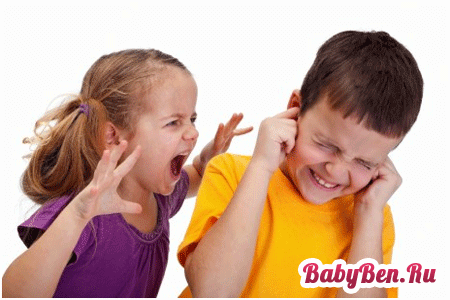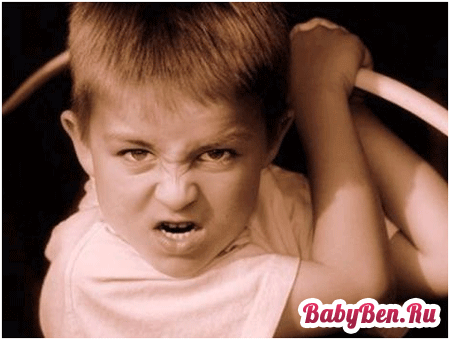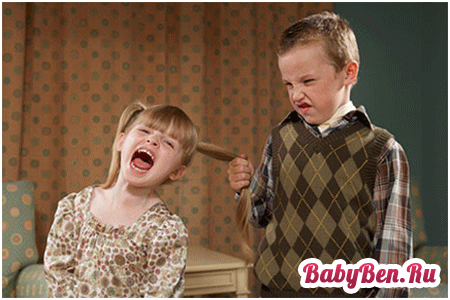
Aggressive child can be due to problems when communicating with peers or adults. Aggression may also arise on the basis of various external factors surrounding the child. In such cases, an aggressive child becomes caustic, does not obey adults, irritable, inattentive and unpredictable in actions.

The content of the article
Causes of aggression in children
The causes of aggressiveness in children can be:
- impaired emotional background;
- inability to control your behavior;
- quarrels and stresses by the fault of parents;
- harsh requirements and physical punishment;
- asocial behavior of parents;
- learning difficulties;
- complex material conditions;
- conflicts with classmates.
Aggression in children is a subconscious form of behavior that serves as a way of self-defense. Misgrim, the child will be able to manage his feelings, tune in to positive. If you do not teach a child in childhood to manage your feelings, in adult life, he may face difficulties in communicating with others.

Help the child in aggressive condition
Bans and suppressing an aggressive state in a child can grow into a more complex form of aggression, when a child may harm himself or get a mental disorder. Adults need to help the child arise the outbreak of aggression to send to a peaceful direction, but not suppress, but to protect their interests with more acceptable ways.
Despite the situation, adults should be careful, understanding, not to insult the child and not punish. Parents can be expressed by discontent about the perfect act of the child, but do not harm as a person. If the child wanted your attention, you should not hide from it or show your irritation, even if you are busy at this time. It is necessary to quietly explain to the child, for what reason you will not be able to play and pay attention to him.
Control over emotions and aggression
Parents who do not want to develop a sense of aggression in their child should closely monitor their statements, show only positive emotions, do not forget that while the child does not grow up, he will take an example from others, and first of all - from his parents.
With the outbreak of anger in a child, try to take it with something positive, for example, drawing, smearing, sports games. Such manipulations, the child will understand that you can learn how to manage feelings and switch aggression into a peaceful direction and useful actions. Gradually, the kid will learn to keep control over emotions and will be able to express the words that he bothers him than he is upset. Adults, in this case, it is necessary to calmly listen to the child, advise how to do in one way or another. Do not blame him in the wrong actions or actions. Try to show care and let the child understand that you always listen and support it. Over time, the baby will need less time to calm down and keep the gusting of anger.

Strategy of Education
Treat your child with respect. Let me express your point of view, your thoughts, feelings that need to be understood and take them seriously. Allow your child to feel significant, free, independent, having your personal space.
Do not stand the parents to intervene in the children's secrets, pry or overheard conversations, because such actions can be provoked by an outbreak of aggression and irritation. Remember, if you need it, the child will suit you yourself if it is necessary. Try to spend conversations with your child more often, you are interested in his problems, if he is upset, with the result that the child will learn to respond differently to unpleasant situations.
